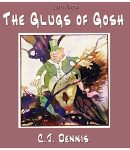
John Donne’s Satires
Donne’s Style In John Donne’s day, a satire was such a poem as a satyr might compose. Satyrs were rough, savage creatures in Greek mythology, human to the waist but goat from there down. That is the reason that Donne’s style in these poems exceeds his normal difficulty in syntax, vocabulary, thought, and meter. His age enjoyed untangling such puzzles, and some poets cultivated obscurity as an art, called asprezza. Wordplay like “while bellows pant below” (Satyre 2), where the same syllables, stressed differently, produce two different words almost side by side, entertained them. An acoustical analogue to obscurity, Donne’s rhymes are often deliberately lame, while his rhythms nearly defy scansion and yet refuse to become mere prose. By keeping the drum beat just barely audible, he makes us feel that we are stumbling, out of step—neither marching nor merely walking. Why was this abuse of the reader enjoyable? Perhaps for the same reason that grafitti appeals to some people. At first glance Donne appears lax, but in fact he is naughty; not undisciplined but rebellious; he does not fail to abide by the rules but rather gives the impression of breaking them. Metempsychosis The poem appears to be incomplete, its “First Song” having no counterpart, no “Second Song.” Similarly its promise to end by identifying what celebrity the soul in question now inhabits is never fulfilled. On the contrary, the poem’s initial epic pretentions founder at the second generation of mankind rather than tracing human history from the Garden […]




